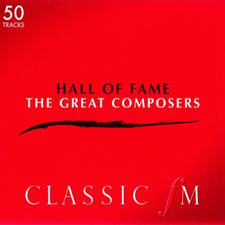Universal's Costa Pilavachi: 'Talent doesn't grow on trees'
30 January 2015, 15:30 | Updated: 15 December 2016, 11:50
The classical recording industry's leading talent scout says he's always on the lookout for special new artists.
There are few people in the world who are as experienced and as knowledgeable of classical artists and repertoire then Universal Music Group International's senior vice president of classical A&R, Costa Pilavachi.
He travels the world seeking out performers to add to the roster of great artists signed to the famous Decca and Deutsche Grammophon labels.
"The secret is finding those talents who are truly different and distinctive and special and have their own voice, which is a new voice," Pilavachi has been telling Classic FM's John Brunning at the Association of British Orchestra's annual conference in Gateshead.
"And, when we find that, it's really not a difficult business at all. The problem is they don't grow on trees," says Pilavachi.
"It's when someone has that special something, we try to find them and try to capture them on recordings and disseminate them to the public."
At the ABO conference Pilavachi joined a Classic FM-hosted debate, titled 'Do all orchestras sound the same?' which asked the question whether British orchestras – now operating in an increasingly global marketplace – are in danger of homogenising their sound.
All orchestras "speak the same language in the sense that they all play the same repertoire more or less," Pilavachi tells John Brunning. "But, having said that, I think that orchestras from traditional classical music countries...do have a very distinguished way of playing their own music. So for example, the Czech Philharmonic will play Dvorak in a very different way from the way the London Symphony Orchestra will."
"Even if a lot of the members of an orchestra are foreigners, they become part of that ensemble which has a tradition, a sound, a culture. And it's in the DNA of that orchestra to play that type of music in a very authentic way."














